
Just like every other country in the world, Bulgaria has a very specific culture influenced by its past and origins. The history of Bulgaria is fascinating and sheds some light on the various aspects of Bulgarian culture and customs, from the way Bulgarians live to their mindset and common character traits. Learners of the Bulgarian language can greatly benefit from knowing more about this country, which some consider to be “The Cradle of Civilization.”
BulgarianPod101 invites you to join us on this intriguing adventure through the culture of Bulgaria. Who knows, maybe this special overview of Bulgarian culture will prompt you to come and experience everything for yourself!
 Table of Contents
Table of Contents
- How Bulgarian History Has Influenced Our Culture
- Philosophies and Religions
- Family & Work
- Art
- The Hospitality of Bulgarian People
- Traditional Bulgarian Holidays
- Cultural Taboos
- How BulgarianPod101 Can Help You Learn Bulgarian
1. How Bulgarian History Has Influenced Our Culture
Bulgaria boasts a long history that has influenced its folklore and ancient rituals, some of which are still preserved to this day. The nation’s religious background has also shaped the character, traditions, and cuisine of the Bulgarian people. Let’s explore the relationship between Bulgarian history and culture in more detail.
What makes Bulgaria special?
Bulgaria is a country located on the Black Sea’s western shore. This land is full of riches and has a very diverse landscape. Here you will find fruitful plains, valleys, and lowlands where lush rivers flow, as well as multiple seaside summer resorts, rural villages, ancient settlements, and high mountains and mountain ranges. The territory of Bulgaria includes all types of relief, and the diversity of its natural resources attracts millions of tourists every year.
Bulgaria is definitely a place worth visiting at least once in a lifetime. Just imagine: spending a nice summer vacation at the beach or by a swimming pool…taking advantage of healing thermal springs and mud baths…exploring artifacts left by the ancient Thracians, Romans, Greeks, and Proto-Bulgarians…or even enjoying mountain resorts that are open to tourists year-round. Yes, please!
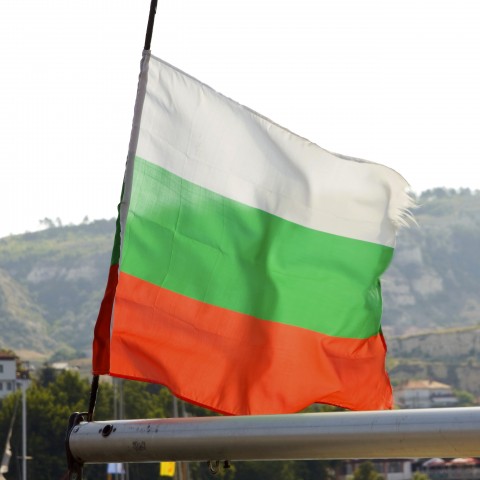
History of Bulgaria
According to ancient historical reports, Bulgarian territory was once inhabited by different tribes who built settlements here as early as 500 BC. They were united by the Odrysian King Teres and later conquered by Alexander the Great. Then, in 46 AD, the Roman Empire took possession of the land, followed by the Byzantine Empire in the fifth century.
The First Bulgarian Empire began in 681 when a treaty with Byzantium was concluded. The first Bulgarian capital was the city of Pliska, and the country was ruled by Khans, who expanded the nation’s territory and strength.
A noble moment in early Bulgarian history was the Bulgarian people’s baptism in the Christian faith. Prior to this, Bulgarians believed in various pagan gods. The Christianization of Bulgaria began in 864, thanks to Khan Boris (who then received the title Knyaz). During the reign of his son Simeon the Great, Bulgaria entered its Golden Age and expanded its territory to reach three seas: the Aegean Sea, the Adriatic Sea, and the Black Sea.
The First Bulgarian Empire ended in 1018 when the Byzantine conquered the entire territory. However, in 1185 the Asen dynasty built the Second Bulgarian Empire after a successful revolt. Unfortunately, this empire also fell, being conquered by the Ottoman Empire in the fourteenth century.
The Ottoman Yoke continued for five centuries, during which there were many unsuccessful revolts. The most popular of them was the 1876 April Uprising, which was severely suppressed by the Ottomans; this resulted in thousands of victims from the Bulgarian population. One year later, in 1877, Russia declared a war against the Ottomans and helped Bulgarians liberate their land. This is how the Third Bulgarian State was established in 1878.
In 1946, Bulgaria became a communist republic. The communist regime remained until late 1989 and was followed by a democracy. This was when Bulgaria opened to the entire world. In the thirty years that followed, Bulgarian culture, customs, art, and heritage were promoted and gained worldwide fame. In 2004, Bulgaria joined NATO; in 2007, it became a European Union member.
- → To gain even more insight into Bulgarian history and culture, you can head over to our lesson on Historical Figures!
Influence on Bulgarian culture
Bulgarian culture and traditions have been greatly influenced by those of the Thracians, Slavs, and Bulgars. After Bulgaria’s Christianization, the Eastern Orthodox Church also began to shape the culture, though numerous ancient customs were preserved and are now recognized as an Intangible Cultural Heritage by UNESCO. Examples include the Thracian barefoot ember dancing known as Nestinarstvo, the dance of the Kukeri, Bulgarian Folklore, and Martenitsa.
The Bulgarian folkloric tradition is so strong that it has influenced many fields, including art, music, literature, celebrations, and even the daily lives of Bulgarians in certain territories of the country.
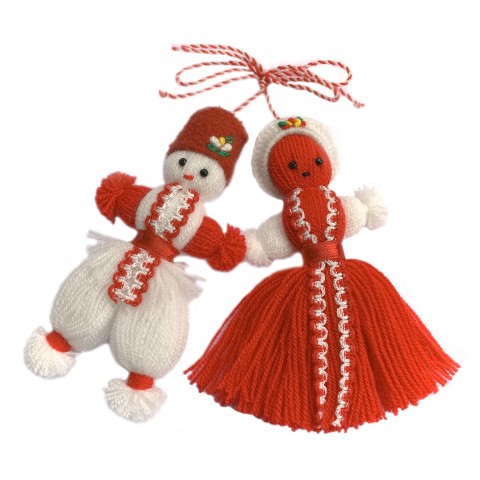
- → Are you interested in learning more about the History of the Bulgarian Language? Then make sure you check out our relevant lesson to gain more insight on the topic.
2. Philosophies and Religions
Religion plays an important role in society, which makes it a key component in understanding Bulgarian culture. In this section, we’ll look at the different ethnic groups in Bulgaria, the prominent religions of the past, and what religion looks like in modern Bulgaria.
Ethnic groups in Bulgaria
Obviously, the majority of Bulgaria’s population consists of Bulgarians, who make up 76.9% of the total population. Turkish people make up another 8% and Romani 4.4%. These are the main ethnic groups in the country. However, you can find many other ethnic groups in different parts of the country, which amount in total to more than 10% of the population. These include Greeks, Russians, Armenians, Ukrainians, Vlachs, etc.
It is interesting to note that in recent years, morе and more foreigners from Western Europe are settling in the rural areas of Bulgaria. They prefer to live in this country, or to spend long summer vacations here.
Before moving on, let’s look at the population’s age demographics:
| Age | % |
| <14 | 14.6% |
| 15 to 24 | 9.43% |
| 25 to 40 | 43.12% |
| 55 to 64 | 13.3% |
| 65+ | 19.54% |
Religions in the past
As we mentioned earlier, ancient Bulgars practiced paganism. They believed in the pagan god Tangra, which is why their religion was called Tengrism. The Slavs and the Thracians who also inhabited this land worshipped different pagan gods, which created a sort of separation between the groups. This separation made them unable to withstand attacks from their surrounding enemies in the face of Byzantium.
One of the main reasons Khan Boris I decided to introduce Christianity into the state was to unite these different tribes into one strong nation. And he succeeded. The unity created by this new religion caused the Byzantine Empire and other great nations to recognize Bulgaria as a kingdom.

Religions in Bulgaria today
The main religion in Bulgaria is still Eastern Orthodox Christianity, to which about 60% of the population adheres. Some of the minorities in the country, such as Russians, Romanians, Greeks, Ukrainians, and Armenians also practice this religion. The Bulgarian Calendar is rich in Orthodox holidays, some of which we’ll discuss later in this lesson.
Islam is Bulgaria’s second largest religion with about 8% of the total population identifying as Muslim. This portion of the population mainly consists of Turkish people, Pomaks, and Roma. There are many villages and cities in Bulgaria with mosques.
Only 0.8% of the Bulgarian population identifies as Catholic; 0.9% (and the number is growing) are Protestants. It is interesting to note that after communism ended, the membership of various Protestant churches in Bulgaria tripled in a matter of ten years. This was due to the foreign missionaries who converted many atheists and Muslims to Christianity. Today, about 10% of Bulgarians are declared atheists or agnostics.
3. Family & Work
In any country, work and family life play significant roles in society. Let’s explore the different facets of work and family in Bulgaria!
Family Values
The most popular family structure in Bulgaria is the nuclear family. Couples normally have one or two children, and it’s rare to see a Bulgarian family with more than three children (with the exception of Roma families).
During the years of communism, family was among the most important values in Bulgaria. In those times, 95% of women believed that a full and satisfying life could be obtained only by having a family. Before democracy was declared in 1989, there were almost no divorces in the country; the few that did happen were looked upon with resentment by society. Things have changed since the start of our democracy and the number of divorces has reached about 10,000 per year.
Western culture has significantly influenced Bulgarian society. According to some sociologists, this has led to the degradation of family values and has made cohabitation a popular choice. In 2011, about 82% of young people aged between 20 and 30 preferred to stay unmarried.
Another change in society is reflected in the relationship between younger and older generations. In the past, elders were widely respected and their children took care of them. Nowadays, the intense speed of our daily routines, as well as the deviation from our traditional family values, have made more and more people rely on hospices and homes to take care of their elderly parents.
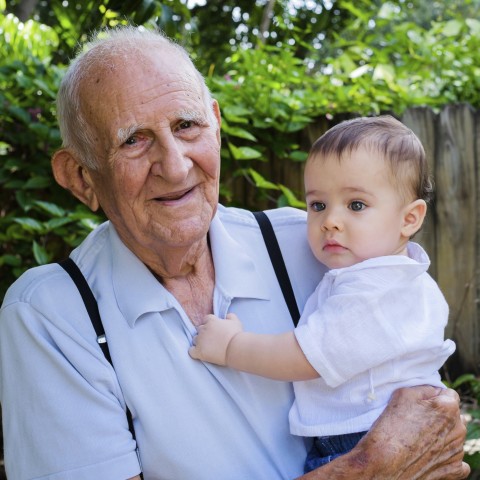
Working in Bulgaria
There has been a recent increase in the number of working people over 45 years of age in Bulgaria, which is a logical consequence of the nation’s aging demographics. Another interesting fact about Bulgarian work culture is that more and more Bulgarians who emigrated to work in foreign countries are returning to Bulgaria. While Bulgaria still has a low salary standard compared to other European countries, the salary is gradually increasing in some sectors, such as IT and outsourcing. This is a motivating factor for job seekers.
The bigger the city, the more jobs there are available. This means that it is more difficult for people who live in the countryside to find a job. Usually, they cultivate the land and raise livestock to produce and sell food.
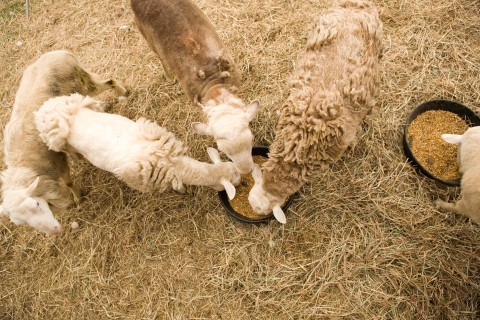
Bulgaria as an agricultural country
Agriculture is well-developed in Bulgaria and the country is an exporter of many kinds of agricultural products. These include different kinds of cereals, technical crops, vegetables, fruits, viticulture, herbs, honey, and even edible mushrooms. The most common cereals include wheat, barley, oats, and rye. Other popular crops include beans, rice, corn, lentils, and alfalfa.
Bulgaria is one of the biggest producers of rose oil and lavender oil in the world. The country is also famous for its tasty and quality dessert and wine grapes. The country’s climate is favorable for an abundance of vegetables and fruits, such as:
- Tomatoes
- Cucumbers
- Peppers
- Squash
- Zucchini
- Cabbage
- Eggplant
- Carrots
- Apples
- Apricots
- Peaches
- Pears
- Plums
- Cherries
- Sour cherries
- Watermelons
- Melons
- All kinds of berries
As for livestock, Bulgarians grow sheep, goats, cattle, buffalo, turkeys, chickens, ducks, geese, pigs, horses, and so on. As a consequence, over 250 thousand tons of milk, 211 thousand tons of meat, and 1.2 million eggs are produced yearly.
4. Art
Bulgarians have contributed to the world’s art development through their great athletes, musicians, opera singers, writers, actors, artists, sculptors, and other personalities who have dedicated their lives to art. Let’s look at three areas of Bulgarian art for which the country is especially famous.
Traditional Bulgarian music
Bulgarian folk music is unique not only because of the special folk instruments used to perform it, but also because of its irregular rhythms, complex harmonies, and the difficulty of the performance. In previous centuries, Bulgarians lived mainly in rural areas, where this was the most popular type of music they created and listened to. Many of the songs and melodies have been passed down from generation to generation until today.
Among the most common musical instruments used in Bulgarian folk music are:
- the gaida (a goatling- or lamb-skin bagpipe)
- the kaval (an end-blown flute)
- the gadulka (a bowed stringed instrument)
- the tupan (а large double-headed drum)
- the tambura (similar to the mandolin)
There are some Bulgarian villages and small towns that have special schools or clubs to teach children and young people how to play these instruments.
One of the most famous Bulgarian folk singers is Valya Balkanska, who was awarded with the highest Bulgarian award “Orden Stara Planina” in 2002. The song Izlel ye Delyo Haydutin, which she performed in 1977, was selected as part of the Golden Record located aboard the two identical spacecraft Voyager 1 and Voyager 2. It is a part of a sound message that the Earth is sending to potential civilizations in the universe. You can hear this popular song here.
Popular sports
Many Bulgarians have gained worldwide fame thanks to their incredible achievements in the world of sports.
Let’s start with Hristo Stoichkov, who is the best-known Bulgarian soccer player of all time. His achievements were so great that many foreigners started to associate Bulgaria with his name. Other popular soccer players of Bulgaria are Dimitar Berbatov and the deceased Georgi Asparuhov, known as Gundi.

Among the most popular Bulgarian boxers are Kubrat Pulev and the late Dan Kolov. Kolov was the first European freestyle wrestling champion from Bulgaria and a mixed martial artist who lived most of his life in the USA.
Another famous name is that of the Bulgarian grandmaster Veselin Topalov, who won the World Chess Championship in 2005 and 2006. Fans of tennis will also be familiar with the name Grigor Dimitrov. Finally, we should mention Stefka Kostadinova, whose World Record of a 209-centimeter high jump in 1987 still remains unbeaten.
Bulgarian literature
There are many notable Bulgarian writers. We’ll start by mentioning Paisiy Hilendarski, who wrote Istoriya Slavyanobolgarskaya in 1762, which was the first written report of Bulgarian history up to that time. Some of the more popular writers include Ivan Vazov with his famous novel Under The Yoke, Emiliyan Stanev with The Peach Thief, and Nikolay Haytov, whose book Wild Stories is included in the Historical Collection of UNESCO.
5. The Hospitality of Bulgarian People
Bulgaria, among other Balkan nations, is famous for its hospitality. Sometimes, Bulgarians еven invite strangers and random visitors for lunch or dinner. However, this kind of hospitality is seen less in the cities and more in rural villages like Ribaritsa (the longest Bulgarian village in Stara Planina), Delchevo (a beautiful village in Pirin, where instead of “Hello,” old people greet with “God bless you”), Leshten (with its nineteenth-century architectural style), Kovachevitsa, and Ognyanovo (where a popular thermal spring is located).
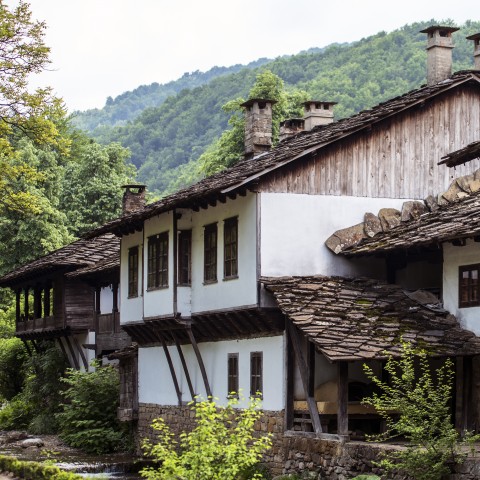
People who offer you hospitality might be offended if you don’t accept their invitation, so it is polite to accept it. Once you enter their home, you are considered a friend. Bulgarians can be very curious about how foreigners live, so be prepared to answer their multiple questions about your country. You can also expect them to reciprocate: most Bulgarians are very garrulous, so you’ll be able to learn many things about Bulgaria in your conversation with them.
Bulgarians who invite foreigners are usually happy to prepare traditional Bulgarian food for them to sample. Common dishes include tarator, banitsa, guvech, and shkembe chorba. This would be a great chance to try authentic Bulgarian dishes cooked by a skilled homemaker who would probably be happy to share the recipes with you—and even give you tips on how to cook them properly.
- → To learn more about the most popular Bulgarian foods and beverages, you can view our lesson on the Top 5 Bulgarian Foods and our vocabulary list titled What’s Your Favorite Bulgarian Food?
6. Traditional Bulgarian Holidays
Knowing about the most popular Bulgarian holidays will allow you to plan your visit for a period when the most important cultural events in Bulgaria are happening. Taking part in the festive atmosphere will help you experience the culture, personality, and history of this country better. However, be aware that some restaurants and shops, and most public institutions, are closed during the official holidays.
Liberation Day (March 3)
This day celebrates the Liberation of Bulgaria in 1878 from the Ottoman Rule. This took place after the Russian Empire won the last Russian-Turkish War. From that day on, Bulgaria was a free country again.
St. George’s Day (May 6)
May 6 is associated with the Christian martyr St. George, who killed the dragon. In Bulgaria, it is also celebrated as the day of the Bulgarian Army and bravery. To celebrate, Bulgarians usually prepare a whole lamb as a traditional meal for the entire family. Moreover, the name George (Георги) is very common in Bulgaria and those with this name celebrate their name day on May 6 as well.
Day of the Bulgarian Alphabet (May 24)
The alphabet created by the Slavonic brothers Cyril and Methodius is called Glagolitsa. It was later simplified by their students, who named the new alphabet after Cyril: Cyrillic alphabet. On May 24, all students and teachers in Bulgaria have a special celebration.
Easter
This is among the most important religious holidays in Bulgaria, celebrating the Resurrection of Christ. If you are in the country during this period, your Bulgarian friends will probably give you a painted hard-boiled egg and a special sweet Easter bread called kozunak.
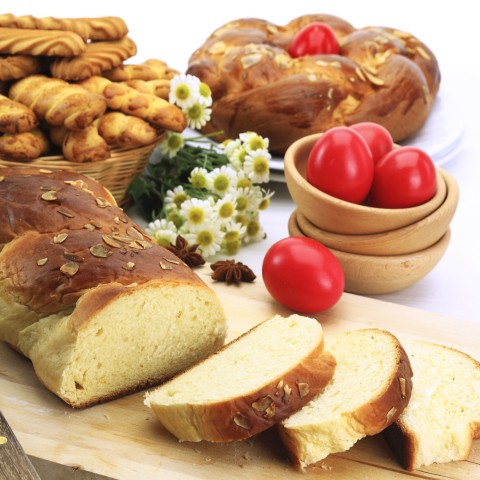
- → In this article, you can learn more about another Bulgarian holiday related to Easter: Tsvetnitsa.
Christmas Eve (December 24)
This is another religious holiday in Bulgaria, celebrating the birth of Christ on Earth. According to Bulgarian traditions for this holiday, we only eat lean dishes on Christmas Eve, and there should be a specific number of dishes: 7, 9, or 11/12 different kinds. A festive bread or banitsa should be made with a coin hidden inside; whoever finds the coin in his piece is considered lucky and will have prosperity and health in the next year.
7. Cultural Taboos
Bulgarians accept people of different countries, social levels, professions, etc. They are generally open to foreigners, which is why the country is home to so many minorities from many different countries. But there are still a couple of things to consider in order to be polite while visiting someone’s house.
When you’re invited to be a guest in someone’s house, it is considered impolite to enter without taking off your shoes. Even Bulgarians take off their shoes when entering the home, even if the housewife insists that they don’t have to do that. This is a sign of respect toward the housewife’s work. She will probably offer you slippers, but some Bulgarians prefer to take their own slippers from home when visiting friends, so you could opt to do the same. It is also impolite to refuse any food or drink offered to you by the host.
8. How BulgarianPod101 Can Help You Learn Bulgarian
There are certainly many fascinating aspects of Bulgarian culture, and we hope that our brief overview has inspired you to continue learning. There is so much more for you to discover, and the more you know Bulgaria, the more effective and immersive your language studies will be.
If you would like to continue studying the Bulgarian language with a personal teacher, you can choose one from MyTeacher by creating a Premium PLUS account. Native Bulgarian linguists will not only lead you through the grammar points, but will also share with you more interesting facts about Bulgarian history and culture.
Before you go, let us know in the comments if there’s anything we missed in this lesson. Is there anything you still want to know about Bulgarian culture? We’ll get back to you as soon as possible!










